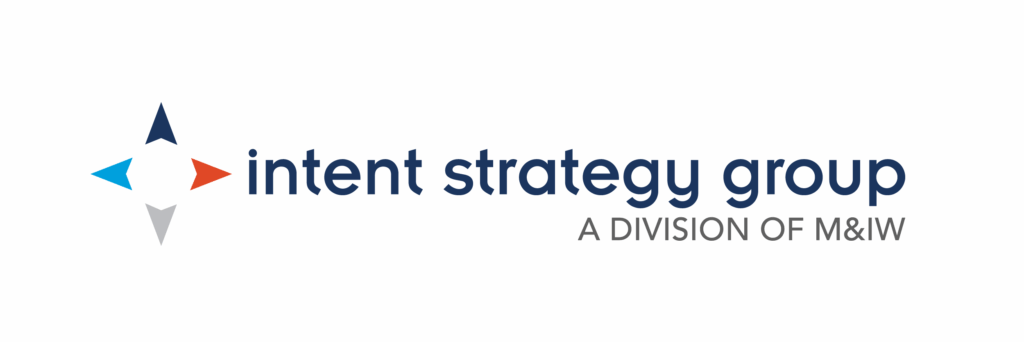What to Know About Event Sourcing: Part 2
Originally published on May 30, 2023. Updated on July 17, 2025.
M&IW’s Event Sourcing experts have seen it all. We stay on top of all the latest developments and are always committed to successful and fiscally responsible sourcing and contracting. As we begin the second half of 2025, we’re sharing the latest knowledge to ensure you’re prepared for the current realities of event sourcing.
In Part 1, we explored the new trends and norms in contracting. Now, we take a closer look at RFPs and general hotel trends. You can also download our guide to event sourcing and RFPs for more tips and best practices from our Event Sourcing team.
In Case You Missed It – What to Know About Event Sourcing: Part 1

Considerations for Effective RFPs
Technology makes it easy to cast a wide net when conducting a hotel search. As a result, hotels receive hundreds of RFPs a day. Because of the high volume, hotels prioritize RFPs based on the potential to book or the best fit. It is not always best to consider multiple destinations; a hotel may conclude that the program is not seriously considering their destination and will therefore not bid. In today’s seller’s market, you need to make RFPs as attractive to hotels as possible.
Include only the questions that are most critical to the success of your program so a hotel can respond effectively and efficiently. It’s also important to include key program highlights or ancillary revenue your group brings to the hotel. Sharing key decision factors and your contracting timeline in the initial RFP stage may assist in a better response and working relationship.

RFP Response Trends
Average Daily Rates (ADR)
STR is now projecting a 1.3% increase in US hotel ADR, which is down from their original 2025 forecast of 1.6%. The decline is driven by macroeconomic factors that tend to impact corporate travel. Groups continue to drive occupancy and have demands over similar periods of time, which in turn drives group rates.
Labor and Service Fees
The Rule on Unfair or Deceptive Fees passed in May 2025 requires hotels to disclose mandatory fees. Additional fees for the individual guests will be disclosed or inapplicable. Therefore, we will see hotels lean into areas where they can recoup revenue, like outdoor set up, room set changes, and premium fees for short-term additions. M&IW continues to protect our customers against undisclosed fees with our standard contract language.
Meeting Space
Carefully consider proposed meeting spaces. Hotels’ priority is to maximize revenue, whereas our priority is that you have enough space to successfully execute your program. We often receive proposals without meeting space details or with space that is far too small. When comparing hotel responses, ensure you only consider hotels that can actually accommodate your program.

Food and Beverage Considerations
It’s no secret that food and beverage prices have increased, and service charges have also increased. We have seen service fees as high as 31%, but the average is 25%. Keep an eye on the service fee percentages while choosing your hotel.
If your contract has an F&B minimum, negotiate it to be as low as possible because hotels calculate attrition and cancellation liabilities using this amount. This mitigates your risk if minimums are not met or if the program is cancelled. However, actual F&B spend is trending about 30% higher than the contracted minimum, so budget accordingly.

Meeting Room Rental Fees
Room rental in the US used to be more flexible and would often only be charged on set-up days that limited the hotel’s ability to earn revenue and sell their guestrooms. However, we now see room rental applied to most spaces, including meal spaces—especially at luxury properties.
Be mindful of your set-up requirements as additional days at the front end of your meeting impacts the total rental charged. Do you need a full two days to pre-set the room, or can it be done in one day? Weigh the overall expense of overtime labor versus the additional day of room rental when considering your space needs. Allowing the hotel to sell the space to another group during pre-days, especially on weekends, will help reduce room rental costs.

General Hotel Industry Trends
Beyond RFPs and contracting, these general industry trends have an impact on the successful and smart execution of each meeting and event.
Sustainability
Hotels have made huge strides with sustainability. There is an internal focus to source local vendors wherever possible, including food, supplies, and gifts. Hotels have also started utilizing their own rooftops or other green space to grow their own food. Additionally, we have experienced great success in working with hotel partners on reducing food waste.
For more best practices, check out our blog post on sustainable event planning.
Drive for Efficiencies
Hotels are embracing technology and AI to enhance the personalized service experience. They are leaning into virtual check-in, key cards, robot delivery services, and text message AI chatbot systems. These services have been available for years, just not mainstream. We’ll continue to see the push toward embracing these technologies.
Management Companies
For many years, major hotel brands held firm that luxury hotels could not be franchised, but this stance is shifting. In 2018, only 6% of luxury hotels were managed by franchise companies. 2024 wrapped with 13% of luxury hotels being managed by third parties. This is partially due to the expansion of the collection-style properties, like The Luxury Collection by Marriott, but we are seeing more classic luxury hotel brands being managed by third parties, too.
Expanded Brands
The hotel industry is responding to the customers’ desires for personalized, authentic travel with local experiences centered around food, culture, and more. When undergoing renovations, they are adding new features that tap into the local flair and sense of belonging.
Major brands are also following the trend of nontraditional, nature-centric experiences with the launch of brands such as Marriott’s Trailborn and Postcard Cabins. Similarly, Under Canvas is a new brand of luxury glamping experiences. Currently marketed to individual travelers, it’s still important to note because customer preferences start at the individual level and drive future group trends.
Elevate Your Event Sourcing
Be aware of these trends so there aren’t unwelcome surprises as you prepare and execute your program. In today’s changing environment, our Event Sourcing team carefully reviews all hotel contracts and diligently works with our hotel sales partners to minimize risk and protect our customers. We continue to be consultative and fully transparent when submitting our final, negotiated contracts to customers for review and approval. Download our guide to learn more about the event sourcing and RFP process.
Ready to start sourcing your next program? Submit an RFP to get started. Already an M&IW customer? Contact your Customer Success Manager to learn more.
Meet the Expert

Melissa Tighe, CAE, CMP
Sr. Director, Event Sourcing
Meetings & Incentives Worldwide, Inc.
Related Articles
- What to Know About Event Sourcing: Part 1
- M&IW Takes on IMEX America 2024
- The Joys of HCP Sourcing and Meal Caps
For the latest insights in corporate meetings, events, and incentives, follow us on LinkedIn.


